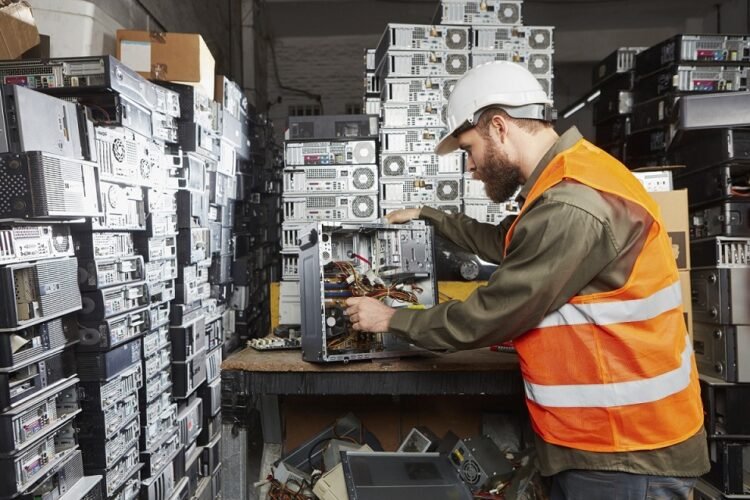As technology continues to advance at a rapid pace, the way electronic devices are designed is changingand these changes will have a profound impact on Los Angeles’s electronic waste (e-waste) stream. With millions of residents and a booming tech-driven economy, Los Angeles faces both a challenge and an opportunity: how to manage the growing volume of e-waste while supporting innovation in electronics design. For residents and businesses seeking responsible disposal options, https://www.techwasterecycling.com/los-angeles/electronics-recycling/ offers convenient services, including free e-waste pickup in Los Angeles, ensuring that old electronics are recycled in an environmentally friendly manner.
The Shift Toward Sustainable Electronics
Modern electronics design is moving beyond performance and aesthetics. Manufacturers are increasingly prioritizing sustainability, focusing on materials, energy efficiency, and device longevity. Modular designs, for example, allow consumers to easily replace or upgrade individual componentssuch as batteries or memory modulesinstead of discarding entire devices. This approach reduces waste and encourages a culture of repair and reuse rather than rapid replacement.
Additionally, innovations in eco-friendly materials are emerging. Biodegradable plastics, recycled metals, and non-toxic components are gradually replacing traditional materials that pose long-term environmental hazards. Energy-efficient chips and low-power displays further extend device lifespans while reducing energy consumption, aligning product design with broader climate goals.
Implications for Los Angeles’s E-Waste Stream
Los Angeles generates hundreds of thousands of tons of e-waste annually. Improper disposal of electronics can release toxic substances such as lead, mercury, and cadmium into the environment, contaminating soil and water. With sustainable electronics design becoming more common, the city has an opportunity to curb these risks. Devices designed for longevity, repairability, and recyclability will enter the waste stream less frequently and can be processed more safely when they do reach recycling facilities.
Moreover, modular and repairable devices mean that consumers are less likely to discard functioning electronics simply because one component fails. This change could reduce the overall volume of e-waste in Los Angeles, giving the city’s recycling infrastructure a chance to keep up with demand while reducing environmental pressure.
The Role of Policy and Manufacturer Responsibility
Policy plays a critical role in shaping the impact of electronics on the e-waste stream. Extended Producer Responsibility (EPR) programs, which hold manufacturers accountable for the entire lifecycle of their products, are gaining traction. These programs encourage companies to design electronics that are easier to recycle, upgrade, or refurbish.
For Los Angeles, this means businesses and residents alike may soon have access to more convenient recycling options, from specialized drop-off locations to take-back programs directly managed by manufacturers. As policy frameworks evolve, they will incentivize sustainable design and reduce the flow of hazardous materials into landfills.
Innovations in E-Waste Recycling
Recycling technology is evolving alongside electronics design. Modern facilities are using advanced separation and recovery techniques to extract precious metals, rare earth elements, and other reusable components from discarded electronics. These processes not only reduce the need for mining new materials but also lower the environmental footprint of the electronics lifecycle.
The combination of improved product design and more sophisticated recycling methods could transform Los Angeles’s e-waste landscape. Instead of being a source of pollution, discarded electronics could become a valuable resource stream, contributing to a circular economy where materials are continuously reused rather than wasted.
Looking Ahead
The future of electronics design promises both challenges and opportunities for Los Angeles. By embracing sustainability at the design stage, supporting responsible recycling practices, and fostering consumer awareness, the city can significantly reduce the environmental impact of its e-waste.
As electronics become more durable, modular, and recyclable, Los Angeles has the chance to lead the way in urban e-waste management. Through collaboration between manufacturers, policymakers, recycling facilities, and residents, the city can create a future where technological innovation and environmental responsibility go hand in hand.






















